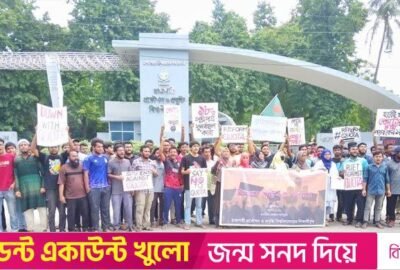Coalition government is not a new or unusual thing for India. Alliances have sometimes been formed with as many as a dozen parties.
India’s major economic reforms and growth have come under coalition governments. Both Congress and BJP have contributed in this regard.
However, India has to form a coalition government for the first time since 2014. Because no single party got a single majority.
Read more>
- 11 leaders of parties in Modi’s cabinet
- Narendra Modi made history by taking oath for the third consecutive term
In the meantime, Modi has taken oath as the Prime Minister for the third time in a row. The election results showed that he lost his majority due to the rise of the opposition. Currently, the fate of BJP depends on the NDA alliance.
Now the only question for everyone is whether Modi can run a coalition government. Because he had never faced such a situation before. When he was the Prime Minister or the Chief Minister of Gujarat, he ran the government with a single majority.
In such a situation, can Modi continue with his hegemonic attitude and regional allies of a different nature? Will he create pressure on other leaders within the party and the media to maintain his image?
Many people think that Narendra Modi will not be very comfortable in the coalition government. Modi has to rely on two regional parties like Janata Dal United and Telugu Desam Party. These two parties have 28 seats. Moreover, these two parties are led by Jhanu politicians Nitish Kumar and N Chandrababu Naidu. Earlier they were in the BJP coalition government but there are precedents of leaving the ruling party due to differences.
In 2019, when Naidu was the Chief Minister of Andhra Pradesh, he also called Modi a terrorist.
Coalition government is very normal but the scenario is different in case of India. When a government becomes dependent on only two or three parties, it is not very sustainable. Because if even one party withdraws then the government collapses.
Many feel that a coalition government under Modi could be good for democracy. Because in such a situation, Modi’s dominance will decrease, the balance of power will increase, the opposition parties will be energized. Moreover, the bureaucracy, judiciary and media will be able to work more independently.
Another influential leader of the BJP, Atal Bihari Vajpayee, ran a coalition government consisting of several parties from 1998 to 2004. He privatized state-owned enterprises, facilitated foreign investment, built expressways, eased trade barriers. Even contributed to the revolution of the IT sector.
He ended a decade-old moratorium on nuclear tests, eased tensions with Pakistan and forged closer ties with the United States. He worked in these areas on the basis of unity.
But Modi’s current coalition is very different from the past. But Modi may dominate as a coalition leader. Because his party did not win in 272 seats but won in 240 seats.
Earlier in 1991, Congress managed to run the government successfully with 232 seats. Even in 2004 and 2009, Congress was able to complete its term successfully after getting 145 and 206 seats respectively.
In the past, BJP-led alliances have pushed the party’s core ideological and polarizing issues to meet the demands of allies.
Now most of the agenda of the party has been implemented. Like cancellation of Kashmir’s autonomy, construction of Ram temple. But the current alliance can soften the tone of Modi? Especially in the case of Modi’s attitude towards Muslims. Modi also targeted Muslims during the election campaign.
Coalition politics requires concerted action while maintaining a balance. The main question now is on which issues can the alliance partners and the BJP agree?
Modi’s party is pushing for a controversial plan to hold federal and state elections simultaneously, which India abandoned in 1947.
Moreover, Modi’s party has promised a uniform civil code, which has resisted both the country’s Hindu majority and Muslim minority in the past.
By 2026, an issue will also come to the fore in determining parliamentary seats. Southern states feel that Modi can increase the number of seats in states where he has a strong position.
Under a coalition government, Modi will have to listen to partners on central and regional issues. Both the TDP and JDU have sought special status for their states, which means more central funds.
Modi needs to focus on job creation amid growing economic development. At the same time, facilities for the poor and middle class should increase. India’s economy needs a lot of structural reforms in the agriculture, land and labor sectors. Modi may need a consultative approach with alliances to achieve anything.
Many feel that politics of consent will not be easy for Modi who has always dominated.
Modi’s biographer Nilanjan Mukhopadhyay says that he was suddenly asked to play a role which he had never done before in his life.
But successful politicians master the art of innovation. Will India now see a gentler, more consultative and compliant Modi?
Political analyst Sandeep Shastri said, in this case we have to wait and see. We have to look at the matter in the light of present situation and not past alliances.
Source: BBC
MSM






